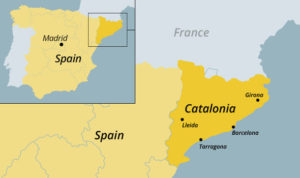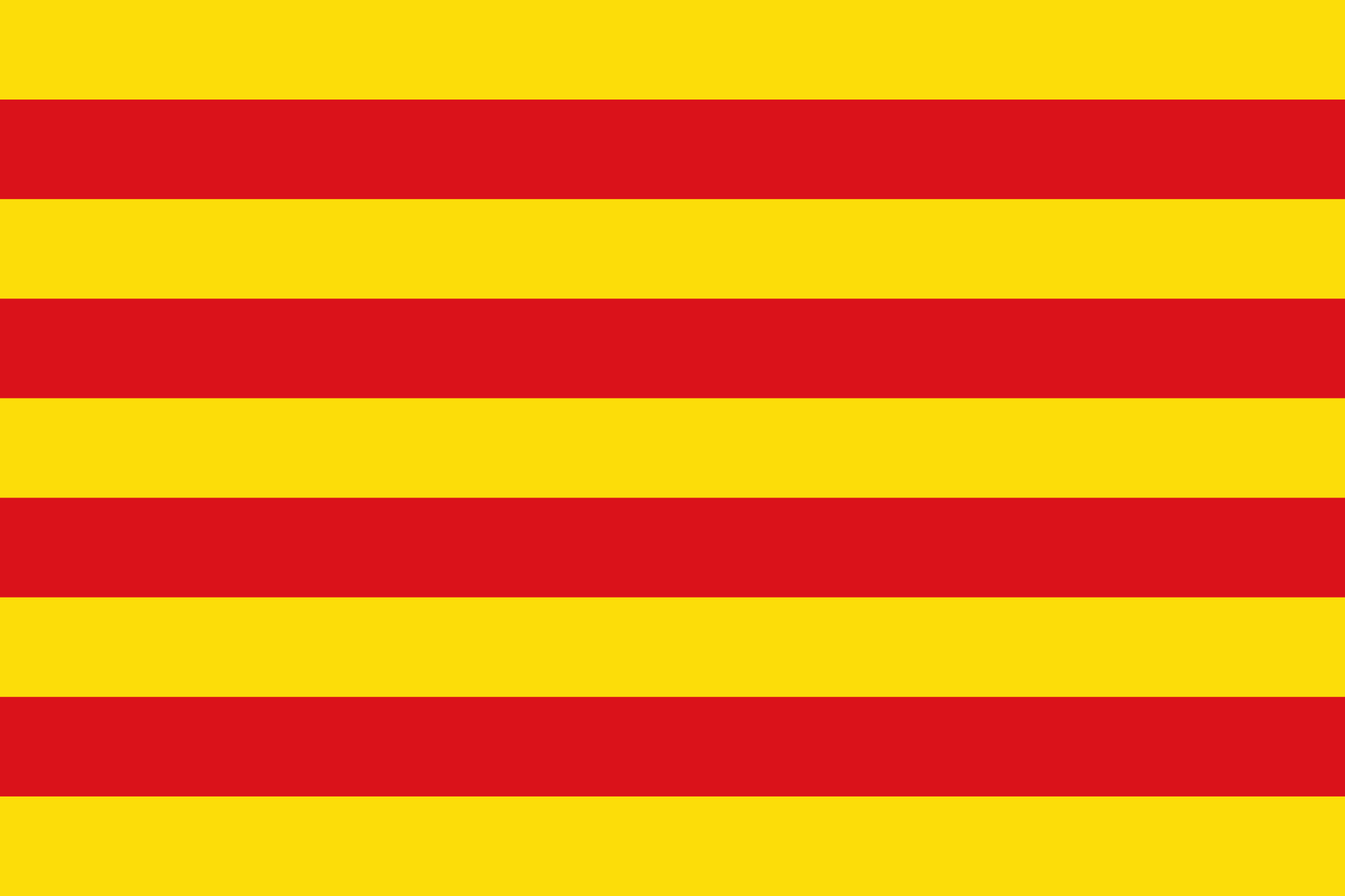A Catalonian Crisis? – Flo Balmer
Written December 2017
In a turbulent period in the world of politics following events such as the vote for Brexit and the election of Donald Trump, it is hardly surprising that Spain is fighting its own political battle inside the realms of its most affluent region, Catalonia. On the 1st of October 2017, the people of Catalonia voted for their region to become an independent republic. Since this moment, Catalonia’s struggle has captured the world’s media attention with the surprising actions of the region’s president, Carles Puigdemont, as well as Spain’s response and the disturbing events that have followed suit.
In the current economic recession in Spain, Catalonia has seen a dramatic surge towards separatism, due to its prosperous status in comparison to the rest of the nation. Many politicians want to reduce the money paid to Madrid, from where they believe the debt originates. The figures confirm these claims; in 2010 Catalonia paid 8% of its GDP in taxes to Zapatero’s government from which nothing was invested into the region. Furthermore, there are very high tax rates, which means that the poor state of schools and infrastructure cannot be improved, nor the health services and other public facilities. Take the airport in Barcelona as an example, which is the busiest in Spain for most of the year. Yet, there are no adequate transport connections, such as a tram, to withstand the number of visitors that pass through and the AENA prioritises the intercontinental flights to Madrid, hence Catalonia’s economy suffers. Many of the voters this autumn felt the effects of these cuts keenly and this has only encouraged them to choose to split from the government which holds them back.

There are clear characteristics of Catalonia which distinguish it from the rest of Spain. Due to its position in the North East of the Iberian Peninsula, it has traditionally been a convenient passage between France and Spain. Subsequently, the multicultural influences of this tie it to both countries, as well as to the nations that arrived by sea to trade in Barcelona, a social and merchant capital of the Mediterranean. With many links to other countries, the region has developed an individual and unique culture, quite different from its neighbouring areas. Its art, literature and music are renowned throughout Europe thanks to various individuals such as Bonaventura Carles Aribau, Salvador Dalí and Antoni Gaudí. There is a universal identity in Catalonia which has stimulated the conflict over its relationship with Spain as many believe that Spain doesn’t understand or respect their regional culture, especially after the Civil War in which, according to Josep Desquens, ‘Catalonia suffered a cruel and systematic annihilation attempt.’ Its language, which dates back to the 11th century, is the mother tongue of more than 9.5 million people and incorporates a shining creativity which combines all the historic influences and tolerant values which characterise the region. Sometimes these differences from the rest of Spain induce much dispute, such as the debate over bullfighting. The regional government of Catalonia prohibited bull fighting in 2010 on grounds of unnecessary cruelty, but the Spanish legal authorities have repealed the prohibition, claiming that the Spanish state has the responsibility to protect common heritage. Such legal clashes have created a shaky tension between the regional and national governments and do raise the question as to whether Catalonia has the right to become a singular state.
In 2012, 1.5 million people participated in a demonstration for independence in Barcelona. It is evident that popular opinion over the state of Catalonia has changed, because in the past this was not the predominant attitude, rather a minority position. Mariano Rajoy’s government and various international politicians fear that independence for Catalonia would open Pandora’s Box in Europe, as nationalists in Scotland, Padania, Bavaria and other places where separatism is on the rise would demand a similar freedom. Furthermore, they say that Catalonia’s government flaunts the financial prosperity of the region when in reality, it owes more than 52 billion euros to the EU after failing to return vast amounts of structural funds that it received from the organisation. In the unstable political world of today, some say that we don’t need selfish nationalism, but communal cooperation in solidarity. Conversely, the majority of people of Catalonia think that Madrid absorbs their cultural plurality and see necessary to fight for the preservation of regional history. Economically, Puigdemont argues that if the nation does not have to pay so many taxes to the capital, it can develop and flourish financially, therefore it would be possible to support its people properly.

Since 2012, Catalonia has headed fast towards independence, albeit the numerous obstacles discovered on the way. In January 2015, opinion polls once again showed high support for independence, resulting in the regional elections that September. Following the success of separatist parties, the regional parliament quickly established new legislation in support of a rapid split, but this was in turn struck down by legal courts in Madrid who declared such legislation against the national constitution. Catalonia’s independence supporters rallied with the enthusiasm and vigour of their new leader, Carles Puigdemont, appointed regional president in January 2016. By June, Puigdemont was calling for a regional independence referendum in October but again this was rapidly rebuked by Rajoy who not only suspended such events but also declared it illegal. Tension continued to rise throughout September as Spanish police seized hidden ballot boxes and stormed Catalonian government offices for evidence of illegal referendum plans, there were violent protests and on the 1st of October, a 42% turnout at polling stations and a 92% pro-independence vote.
The situation continued to crescendo as the first three days of October saw strikes and protests rock the region and the rare event of a television address by King Felipe VI of Spain, giving a word of warning to separatists and appealing for calm. Following the election result, Rajoy issued Puigdemont a deadline of the 16th of October to clarify if he has declared independency or not. This was then extended to the 19th of October, yet on the 17th Spain imprisoned two Catalan pro-independence politicians, Jordi Sanchez and Jordi Cuixart, and on the 21st suspended Catalonia’s autonomy, stating that Spain would impose direct rule as of the 28th. Puigdemont, compromised and threatened, announced he would leave the decision to his MPS, who chose (vote 70:10) to declare themselves an independent nation.
A swift international backlash followed this claim. The Chairman of the European Commission responded by describing separatism as ‘poison’, an unhelpful attitude preventing Europe from working together. Spain annulled the independence declaration and imprisoned several more Catalonian politicians and lawmakers, whilst Puigdemont fled to Belgium where he promptly handed himself in and where, despite Spain dropping their European Arrest Warrant, he plans to stay for the moment. Once again, the nation assembled to vote over independence on the 21st December 2017, when pro-separatist parties enjoyed success. Currently JuntsxCat, ERC and Candidatura d’Unitat Popular are conferring over the possibility of forming a coalition government after they collectively won a two seat majority. Puigdemont, as the present president of the Catalonian parliament, has expressed his desire to meet with Rajoy to discuss the future of Catalonia and secure a peaceful divorce and Rajoy has echoed this with his wish to enter dialogue with the Catalonian leader. In his Christmas address of 2017, King Felipe VI reiterated the need for peace, claiming ‘the way forward cannot once again lead to confrontation or exclusion that, as we now know, only generates discord, uncertainty, anguish.’ With a relatively positive attitude of all parties involved despite of past grievances, it will be fascinating to see how the crisis over Catalonia continues to develop in the coming month and how the long term consequences affect the region’s culture, economy and political spectrum.















Post Comment
You must be logged in to post a comment.